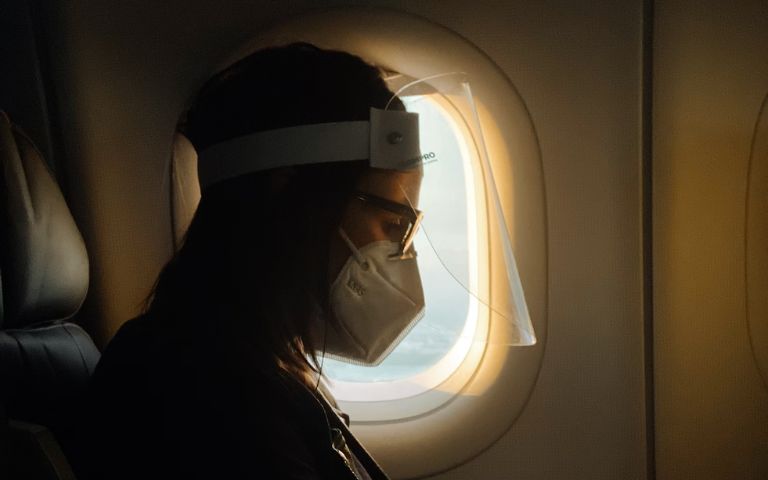Motion sickness (aka travel sickness or kinetosis) occurs when there is confusion between the movements that you perceive with your eyes and the movement sensed by your vestibular system. It is a common sickness and it can occur whilst on the road, up in the air or out at sea.

The most likely symptoms of motion sickness are nausea, dizziness, and fatigue. In addition to these symptoms, individuals may also experience sweating, a general feeling of discomfort, and in some cases, vomiting. This condition is typically triggered by repeated motions, such as the swaying of a boat or the movement of a car, and can affect people of all ages.
If you are travelling by car, bus or train, you may experience travel sickness, especially when you are trying to read a book or a map. This is because your eyes mostly see the interior of the motor vehicle, which is motionless, while your inner ear senses motion as the vehicle goes around corners or over hills and even small bumps. Looking out the window can help, but not always. This is because another cause of motor vehicle sickness is when your eyes view motion outside while riding in the moving vehicle while your inner ear sense stillness, creating conflict between your eyes and inner ear.
If you are travelling by aeroplane you may experience a slightly worse form of motion sickness on occasions when the aeroplane may bank and tilt sharply. Also it can be harder to relieve nausea by looking out of the window because aeroplanes have smaller windows and many non-window seats. Therefore it is likely to see only the stationary interior of the plane. Another factor is that while in flight, the view out of the windows may be blocked by clouds, preventing window-seat passengers from seeing the moving ground or moving lower clouds.

If you are travelling by sea, your motion sickness may be significantly worse still, due to the constant rocking motion of the boat or ship. As with air sickness, it can be difficult to visually detect motion even if one looks outside of the boat. This is because water does not always offer fixed points with which to visually judge motion. Poor visibility conditions, such as fog, may worsen sea sickness. Although it depends on the type of boat you are travelling in, sea sickness can, in extreme cases, cause vertigo, and can completely ruin a traveller’s holiday.
Without proper treatment, motion causing nausea will often cause you vomit, which often will not relieve the feeling of nausea.
There are a variety of over-the-counter and prescription motion sickness medications available to treat travel sickness. These medications work in different ways. Some medications act directly on the vestibular system by blocking nerve signals to the area of the brain that controls vomiting. Others have been found to improve blood flow to the inner ear and thus can be used to block the clashing message from the vestibular system.
Choosing the right motion sickness medication depends on a number of factors, such as the time the medication takes to work, the longevity of the medication and whether you are currently taking any other medications, have any existing illnesses or are pregnant.
If you are thinking of travelling overseas and are concerned about motion sickness, we suggest that you visit one of our Southbank Medical Clinic to find out the best treatment for you. Our Southbank Doctors specialise in travel medicine and will be able to guide you through the process of finding the right way to combat your motion sickness. Click here to book a consultation or call 03 9690 1433.

